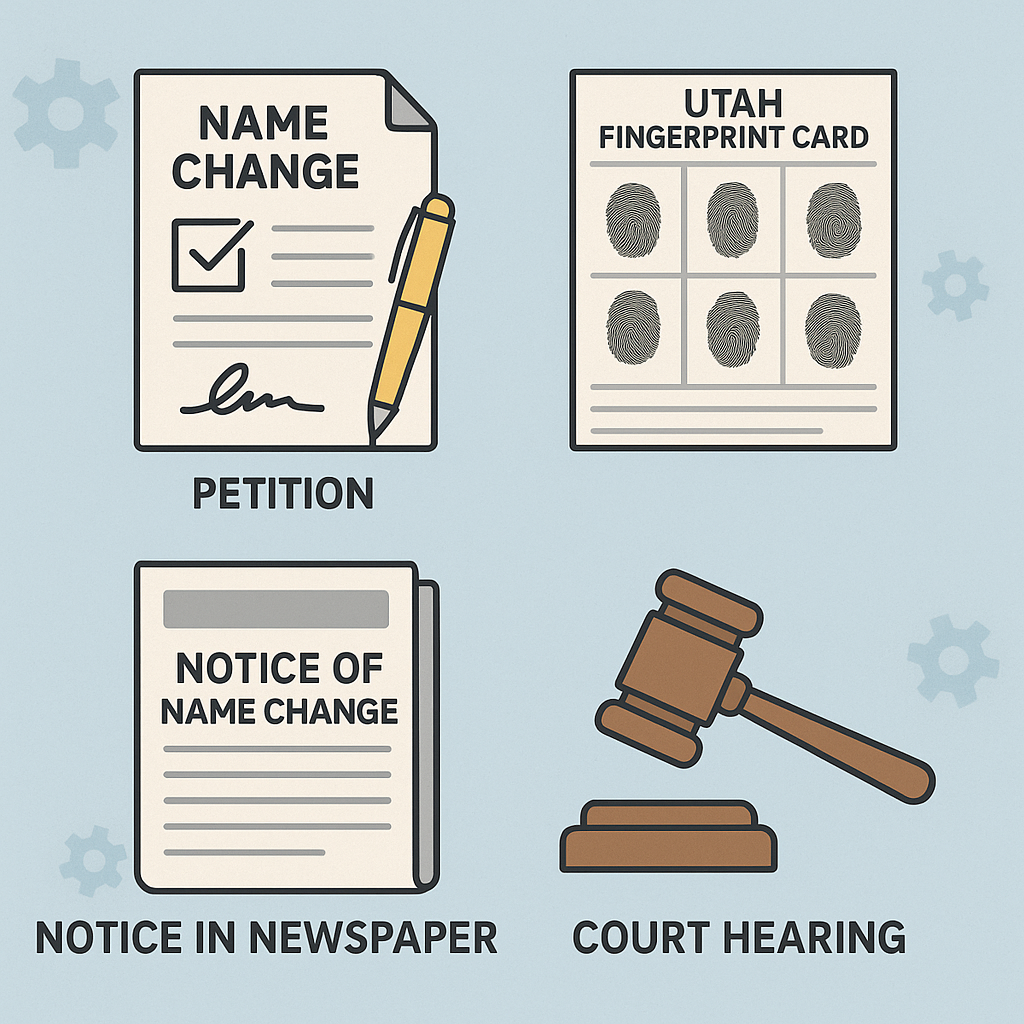Name Change in Utah What Adults & Parents Must Do
A plain-English guide to forms, fees, publication, background checks, and hearings
Utah Law Explained breaks down the process for both adults and children. Changing your name is possible in Utah, but you’ll need to follow specific steps. This guide gives you a Utah-focused explanation of what’s required first, then walks you through the forms, fees, publication rules, background checks, and hearings so you can approach the process with confidence.
Why does this matter? For adults, a name change can help after a divorce, marriage, or simply to better reflect your identity. For children, parents may seek a change for family unity or other important reasons. No matter the situation, Utah courts expect you to follow exact rules, and missing a step could delay or even prevent approval.
Adult vs. Minor Name Change in Utah
Adults file their own petition; a parent or legal guardian files for a minor. Courts consider eligibility, the reasons for the change, and—if a child is involved—whether the change is in the child’s best interests.
Adults (Self-Filed)
File a Petition for Name Change. You’ll complete publication (unless waived), do a BCI background check, and attend a hearing.
Minors (Filed by Parent/Guardian)
Parent/guardian files. Judge focuses on the child’s best interests; publication may be waived to protect privacy.
What Judges Consider
Eligibility, clear reasons, any objections, safety/privacy concerns, and (for minors) benefit to the child.
Outcome
If approved, the judge signs an order. You’ll use certified copies to update IDs, records, and accounts.
Forms and Fees
Adults must complete a Petition for Name Change available through the Utah courts. Parents seeking a change for a child file a similar petition with added documentation.
File in the correct Utah district court where you live. If you qualify for a fee waiver, submit the waiver request at filing to avoid delays.
Publication, Background Check, Hearing & After Approval
Publication Rules
Background Check (Adults)
Hearing Day
After Approval
Step-by-Step: Your Utah Name Change
Prepare Your Petition
Choose adult or minor forms. Gather ID, proof of residence, and any relevant court orders.
File & Handle Fees
File in your district court and pay the fee (or submit a fee-waiver request if eligible).
Publish (If Required)
Arrange newspaper publication for adults unless you obtain a safety-based waiver. Minors may be waived.
Complete Background Check
Adults must submit fingerprints to Utah BCI; ensure results are available by your hearing.
Attend Hearing & Update Records
Explain your reasons; if approved, use the signed order to update IDs, Social Security, passport, and accounts.
Need Help Applying This to Your Situation?
Every family’s circumstances are unique, and Utah courts review each case individually. If you’re unsure how to present your case—or whether your changes qualify—speaking with a Utah family law attorney can help.
Talk to a Utah AttorneyVideo & Social Learning Hub
YouTube Resources
Instagram Highlights
Key Takeaways
Adults and minors can change names in Utah, but the requirements and judicial standards differ.
Publication is generally required for adults but can be waived for safety; minors often receive privacy-based waivers.
Adults must complete a BCI background check. After approval, use the signed order to update all records.
This page is legal information, not legal advice. When in doubt, get counsel before you file.
Next Step
If you’re ready to move forward, start gathering your documents and plan your filing. A short consult can help you avoid mistakes and delays.
Book a Name-Change ConsultWe’ll help you understand the forms, publication options, background check timing, and what to bring to your hearing.
